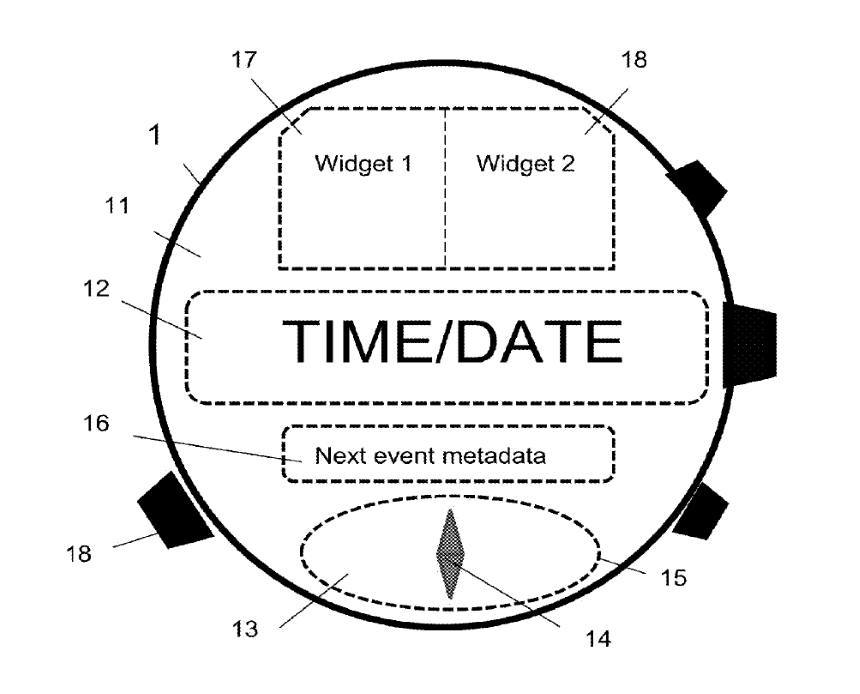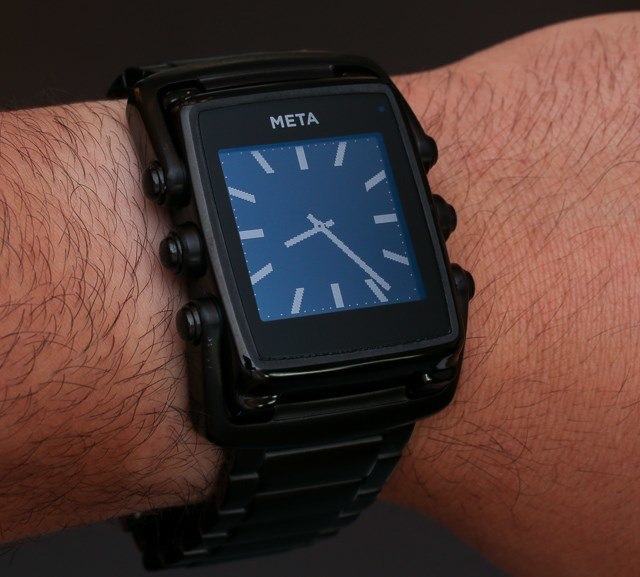
META Watch was co-founded by Bill Geiser, who earned his watch industry stripes while working at Fossil. Whatever you might say about Fossil products, what you need to know is that it is run by some extremely smart and professional people out of its Dallas, Texas, headquarters. Geiser went on to be one of the earliest proponents of modern smart watches. According to him, he has been wearing a Bluetooth connected watch for about five years now – perhaps the only one wearing one for so long. Today, Bill Geiser is the CEO of META Watch that recently released the Frank Nuovo-designed M1 smartwatch collection (hands-on here, with interview). Frank Nuovo is a former head of design at Nokia and designed the M1 collection – which I thought was actually pretty interesting.
Anyhow, even though META is putting considerable resources behind the M1 smartwatch collection, it is only the start of what Bill feels are a series of major evolutionary steps for the smartwatch industry. META doesn’t just want to be a smartwatch maker, but also a supplier of smartwatch platforms. You’ll be hearing more about that in the future. This is a good thing, and I will tell you why.
Bill Geiser isn’t just a data guy, but he is a watch guy. One thing that he unequivocally understands is that for smartwatches to hit the mainstream, they need to be more useful, more simple to use, and more attractive. A recently published patent application by META watch sheds light on what they have planned as well as what might be a seriously valuable technology if they are granted the patent after the examination process. The claim is rather long and confusing, but I will go ahead and explain what I feel are the relevant parts. By the way, the patent at issue is application number 20140293755, which can be read at the USPTO website, here.
Don’t you love the names of patents? This one is “Device With Functional Display And Method For Time Management.” Wow, that sort of defines all watches, doesn’t it? The idea is that META Watch, with inventors Bill Geiser and David Rosales, are claiming a system that mixes both a digital dial and real (mechanical) analog hands on the same dial of connected watches. The hands are meant to adapt to the display on the face, which is meant to have variable “widget areas.” So to put it more simply, think of a watch with a digital screen and analog hands that displays information flexibly, depending on the scales display on the screen. That scale might be the time on one screen, or perhaps a temperature gauge on another screen. There really aren’t any limitations, and META Watch wants to hold the invention rights to any connected watch that has both analog hands and a digital screen connected to the same movement. This would not protect smartwatches like the Hyetis Redline or Crossbow that have hands as part of a mechanical movement that have nothing to do with what is on the screen underneath them.
While it isn’t clear when the patent will be approved, or if it will, I am pretty sure META Watch is actively working on prototypes for such a smartwatch product. Again, if you are curious why META might want to combine a digital screen with analog hands, there are a lot of reasons. A simple one is being able to read the time without having to “turn on” the screen. The time could be read via the hands and battery life could be saved by not having to turn on the screen. Perhaps just as important is visual aesthetics. We have had digital watches alongside analog ones for over 30 years now. I think most people will agree that analog dials are much more beautiful overall. Bill Geiser is, perhaps correctly, convinced that his invention will marry functionality with beauty in watches that look more familiar, and will thus be easier for consumers to adopt in the future.
So, if you happen to like analog dials better than digital ones, you aren’t at all alone. While this invention adds little potential functionality (though it does have some practical applications), the novelty is really in how smartwatch functionality can be adapted to the needs of existing watch makers and the expectations of consumers. meta.watch

